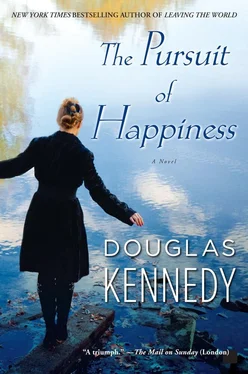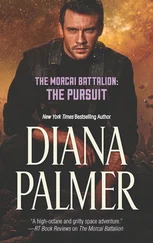Eric's funeral took place two days later. It was held at the Riverside Funeral Home on Amsterdam and 75th Street. Only a dozen people showed up: Jack and Meg, Joel Eberts, a handful of friends from Eric's theater days, a classmate or two from Columbia. Nobody from NBC made an appearance. Marty Manning did send a wreath, and a note to me, in which he said that Eric wasn't just a brilliant writer of comedy, but a true mensch... and someone who didn't deserve the fate that had befallen him:
'We live in strange times', Manning wrote, 'when a man as funny and gentle as your brother is bullied into despair. Everyone on the show loved him. We all wish we could be there Monday to say a proper goodbye - but Monday is our big rehearsal day. And as Eric himself would have said, "The show must go on." Please know you're in our thoughts...'
I knew full well (from Eric) that Monday was just the first readthrough of that week's script - and that it never really started until around eleven in the morning. Had Manning and Company wanted to, they could have easily made the ten a.m. service at the Riverside. But I understood their reluctance to make an appearance at the funeral. Just as I understood the subtext of the line about Eric being bullied into despair. Like everyone else, Manning and his team were terrified of the same fate befalling them. And I was pretty damn certain that a directive came from Ira Ross and the brass on the forty-third floor that no NBC personnel should attend the funeral, just in case the FBI had decided to post a man at the door to take down the names of anyone who dared to show solidarity with Eric.
As it turned out, Mr Hoover and his associates reckoned that my dead brother was no longer a threat to national security - so unless they had the Riverside Chapel covertly staked out, I could detect no sign of FBI presence. Instead, the dozen mourners who dared to show their faces sat together in the first two rows as a Unitarian minister made a series of telling comments about Eric's integrity, his sense of conscience, his courage. The minister's name was Roger Webb. The funeral home had recommended him when I said that Eric was, in essence, a non-believer ('Then this Unitarian reverend is the guy for you', the funeral director told me). I had expected some bored man-of-the-cloth who would say a few prayers, mutter a couple of platitudes, and be glancing at his watch during the entire service. But Roger Webb was young, earnest and actually nice. He made a point of calling me a day before the funeral and asking a lot of questions about Eric. I suggested that he come over to my apartment to talk things through. He showed up a few hours later - a baby-faced thirty-year-old from Columbus, Ohio. From a few passing comments he made as we sipped a cup of coffee, I sensed that he was good news - and, like most Unitarians, liberal in temperament. So I opened up, telling him exactly what had befallen Eric - and the admirable, but self-destructive choice he made when he refused to name names. I also risked mentioning his involvement with Ronnie.
He listened in silence. Then he finally said, 'Your brother sounds like he was a remarkable man. And a total original'.
I felt my throat tightening. 'Yes', I said. 'He was definitely that'.
'We're actually scared of originality in this country. Of course, we spout on about rugged individualism, and all that John Wayne nonsense. But, at heart, we're a nation of Babbitts. "Don't rock the boat, don't step outside the social norm, don't question the system, be a team player, a company man." If you don't conform, God help you'.
'You sound like Eric'.
'I'm certain your brother would have put it in a smarter, wittier fashion that I just did. I'm a huge fan of The Marty Manning Show'.
'I want you to speak your mind at the service, if that's all right with you'.
'No one can really speak their mind these days - because it may be taken down and used against you. But there are ways of getting the message across'.
The next morning, Roger Webb stood to the left of my brother's coffin and addressed the sparse assembly of twelve mourners. He talked about choice.
'Choice defines us. Choice forces us to confront our true nature - our aspirations, our fears, our ethical fibre. Often in life, we make the wrong choice. Or, in the case of Eric, we do something quietly heroic - we make the right choice, even though we know it is that choice which will undermine all that we have created in life. Eric was faced with an appalling decision. Should he harm others to save himself? It is the sort of choice that illuminates an individual's conscience. Had Eric opted to save himself, his would have been an understandable decision - because, after all, the instinct towards self-preservation is a huge one. And personally speaking, I don't know what I would have done if I had been presented with the choice Eric had to make. For that reason, I hope we can all find understanding in our hearts for those who have recently had to face such a choice - and, for whatever reason, could not sum up the same level of selflessness which Eric did. Forgiveness is one of the hardest things in life - and possibly the most crucial. Eric did something supremely courageous. But those who did otherwise should not be condemned outright. This is a curious moment in American life - and one which, I sense, will come to be viewed in retrospect as a foul, demagogic juncture in our collective history. I hope we can all find the courage to understand the moral pressures which have engulfed so many of us - to salute Eric Smythe's bravery and mettle, yet to also show empathy for those who felt it necessary to make equally difficult, but more self-preserving choices.
'Being a minister, I should probably underpin such a sermon with a line from the Bible. But being a Unitarian, I can also get away with invoking poetry - specifically, a few lines from Swinburne. "Sleep; and if life was bitter to thee, pardon, If sweet, give thanks; thou hast no more to live; And to give thanks is good, and to forgive."'
Next to me, Jack buried his face in his hands. Meg started to sob. So too did most of the other mourners. But I simply stared ahead at the coffin, appalled that this was actually happening. Maybe it was the stark sight of that simple pine box - and the realization that my brother was inside it. Or maybe it was the knowledge that everything you do in life is reduced to this - that this is your ultimate destiny. Whatever the reason, I was too numb to cry; too deadened by the shock of the past few days.
We said the Lord's Prayer. We asked that our trespasses be forgiven, as we (allegedly) forgave those who trespassed against us. We sang a single hymn, 'A Mighty Fortress Is Our God' - chosen not because of its uplifting Lutheran message, but because Eric once told me it was the one hymn he could never get out of his atheistic head from all those Sundays that our parents dragged us to church. Roger Webb gave a final benediction, asking us to go in peace. The undertakers wheeled the coffin down the aisle. We followed, streaming out into a perfect spring day. There was much hugging and dabbing of eyes among the mourners as the coffin was loaded into the back of the hearse. People began to say their goodbyes. Only four of us - Jack, Joel Eberts, Roger Webb and myself - were going to accompany Eric to the crematorium in Queens. I wanted it this way - because I knew that all eyes would be on me as the coffin disappeared into the furnace, and I needed these final moments to be private ones.
We traveled out in a long black limousine. It trailed the hearse. We got stuck in a massive traffic jam on the Queensboro Bridge. There had been an accident up ahead. Everyone began to lean on their horns. None of us had spoken since leaving the funeral home. Roger Webb broke the silence.
'Looks like we're going to be a little late', he said absently.
Читать дальше












